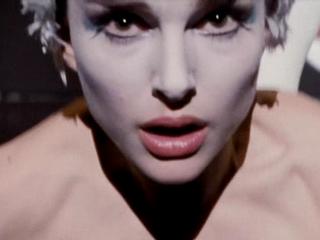 There’s a good reason that I’ve shied away from dance recitals my entire life. To a boy growing up in the 2000s, they just seemed cold, dull, and snobbish. Well, anything can seem that way until you literally rip the curtains down and see what happens backstage.
There’s a good reason that I’ve shied away from dance recitals my entire life. To a boy growing up in the 2000s, they just seemed cold, dull, and snobbish. Well, anything can seem that way until you literally rip the curtains down and see what happens backstage.
Here comes “Black Swan.” This film doesn’t just rip open the big red curtains, it tears them down and cuts them into shreds. This is Darren Aronofsky’s second attempt to turn an eccentric sporting event into a dark art and in that, he is a success.
“Black Swan,” like another recently acclaimed movie, “127 Hours,” is a one man show. Actually, let’s make that a one woman show. To explain the true plot of “Black Swan” I would probably have to kill you, but it’s worth a shot. Nina Sayers (Natalie Portman) is a tightly wound, overly perfect ballerina looking to land the leading role in her company’s production of “Swan Lake.” Her struggles and desires soon turn into a creepy, deadly obsession and a major rivalry between a new dancer (Mila Kunis).

Mere plot summary does no justice in describing the story of “Black Swan.” Perhaps the best way to put it is that the whole film feels a little like a documentary filmmaker was sent to cover a production of “Swan Lake,” and accidentally released a demon backstage. Yes, this film contains the eerie combo of being both realist and surrealist psychological thriller. The handheld cameras make “Black Swan” the perfect documentary of the mind, putting the audience directly into Nina’s point of view. This helps make her delusional state of mind all the more believable.
Aronofsky’s talent for psychological thrillers stems from his films “Pi” and “Requiem for a Dream,” where he explored characters on downward spirals thanks to obsession. Next came “The Wrestler,” where he gave audiences a poignant and realistic look at the life of a professional wrestler trying to make a comeback. “Black Swan” can be seen as the culmination of Aronofsky’s current career, as it mixes elements from all of those films. What really distinguishes Aronofsky from all other directors working today is no matter how well known his films get, he never lets go of that home grown feeling.
Aronofsky makes ballet not only interesting but also quite morbid. The fascinating process of watching a ballerina break in her dancing shoes brought only foot binding to mind.

If the world was a perfect place, then Portman would become Aronofsky’s muse, and they would work together on every movie. Yet, it doesn’t seem like Portman truly needed help to achieve the best performance of her career; she had it in her all along. While some might act with their words or their facial expressions, Portman acts with her entire body. She makes her character constantly act like she is in a ballet: using every little movement of the legs or arms to describe joy or pain.
Most importantly, Portman invests so much emotional effort into Nina that we actually care about her trip into utter insanity. She acts uptight when she needs to, and loose when her character finally begins to relax. Even when Nina seems so on top of her game, there is always an underlying layer of fragility and weakness. She makes the repeatedly played “Swan Lake” score all the more haunting during her shocking transformation. She also leaves true intentions and events totally ambiguous.

That is part of the beauty of “Black Swan”: ambiguity. “Black Swan” may or may not contain so many hidden meanings. The film partly encompasses a story about how societal pressures and expectations can hold us back and keep us in a child-like state. It is about what happens when we let go of our insecurities and inhibitions and just dance. It also covers ground of deception, manipulation, and the essence of creating a work of art.
The essential part of a film is the feeling it leaves you with in the end. In a good film, you know the feeling. A great film leaves the viewer with so many emotions that one simply can’t be chosen. At the end of say, “Chinatown,” I felt like I had just watched a small puppy be beaten in front of me. More recently, the conclusion of “127 Hours” made me feel so overwhelmed and newly appreciative at the subtle greatness of living.

Once the credits rolled for “Black Swan,” it felt as if a mad scientist had rewired my brain and made every emotion indistinguishable. I walked out angry, I walked out enthralled. A strange, new possibility of alternate reality had just been so convincingly presented.
In the end, “Black Swan” towers above its contemporaries for making an old twist kind of story really unique. This is the rare psychological thriller that doesn’t try to be artsy; it just wants to tell a good story. Aronofsky doesn’t want “Black Swan” to be some giant cliche, as the film’s main goal is to penetrate the true nature of both storytelling, and in effect filmmaking, itself. In the same way Nina turns her life into the life of the Black Swan, so does Aronofsky in turning the story of his film into “Swan Lake.” When one is creating a work of art, one must become it.
If You Liked This Movie, You’ll Also Like: Pi, Requiem for a Dream, The Wrestler, Rosemary’s Baby, Carrie, District 9, American Beauty, Mulholland Dr., Eraserhead

